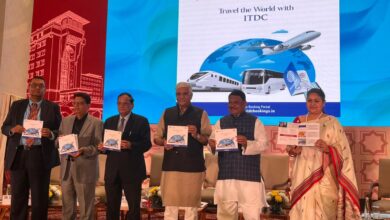India Eyes No. 1 Spot in Global Automobile Manufacturing: Nitin Gadkari
India has now surpassed Japan to become the third-largest automobile market globally, Gadkari

Union Minister for Road Transport and Highways, Nitin Gadkari, today unveiled an ambitious roadmap to make India the world’s leading hub for automobile manufacturing, green mobility, and infrastructure innovation at the International Value Summit 2025 in New Delhi.
Highlighting India’s rapid growth, the Minister announced that the country has now overtaken Japan to become the world’s third-largest automobile market. “All major global automobile brands are now present in India. Their focus has shifted from merely assembling to exporting vehicles from India to the world,” Gadkari said. He added that India is aiming for the No. 1 global position within the next five years, pointing out that the country’s two-wheeler sector already exports over 50% of its production.
On clean mobility, Gadkari reiterated India’s commitment to leading the world in electric vehicles, hydrogen fuel, and alternative energy. “We have already launched hydrogen trucks, and pilot projects are underway across ten routes. Our aim is to lead the world in green mobility,” he stated. With the participation of companies like Tata Motors, Ashok Leyland, Reliance, and Indian Oil, the government has allocated ₹600 crore in grants to accelerate hydrogen infrastructure. The Minister also cited progress in innovative fuels such as isobutanol and bio-bitumen, currently under active trials.

Road infrastructure was another key focus. “India now has the second-largest road network in the world. Travel times have drastically reduced—Panipat to Delhi Airport now takes just 35 minutes instead of three hours,” Gadkari noted. Upcoming mega projects like the Chennai–Bengaluru Expressway and the ₹23,000 crore Bengaluru Ring Road are expected to transform connectivity and ease urban congestion.
Sustainability featured prominently in the Minister’s address. “We are converting waste into wealth. Over 80 lakh tonnes of waste from the Ghazipur landfill have been used in road construction, reducing the mountain’s height by seven metres,” he shared. Trials of bio-bitumen made from rice straw have shown better performance than petroleum-based bitumen while curbing stubble burning, he added.
Calling for global cooperation, Gadkari urged international players to partner with India in areas like precast road construction, tunnel engineering, hydrogen transport systems, and circular economy solutions. “We do not have a resource problem. Our roads are monetized, and our revenue is strong. What we need is your innovation, your technology, and your cooperation,” he concluded.




